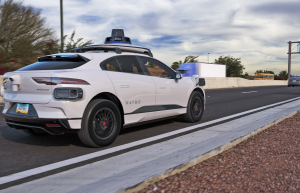
In a speech at a private event earlier this week, the Commander of US Strategic Command, which manages the US nuclear weapons program, cautioned that China is producing nuclear weapons more quicker than the US and labeled the matter a "near-term threat."
Richard's remarks portray the situation as more serious than other officials have made it appear in public, despite the fact that Pentagon officials have been raising the alarm about China's military expansion and development of nuclear weapons for years.
China's Nuclear Weapons Program Grows Fast
Adm. Charles Richard said, "As I assess our level of deterrence against China, the ship is slowly sinking." A "near-term problem," according to Richard, is the growth of China's nuclear weapons program.
On Wednesday, ichard made the remarks while giving a speech at the Naval Submarine League Annual Symposium. Although the event was private, Richard's remarks were made public on Friday in a Department of Defense press story, as per CNN.
In a series of policy documents outlining the US's defense and military strategy that were released at the end of October, the Biden administration repeatedly referred to China as the US' main global rival and issued warnings regarding the nation's advancement of its military and nuclear weapons program.
According to a senior defense source, China represents the US's "pacing challenge" because it is "the only rival with both the purpose and increasingly the means to systematically attack the United States across the board, militarily, economically, technologically, and diplomatically."
By the end of the decade, China "certainly aims to acquire at least 1,000 deliverable warheads," according to one of the strategic documents, the Nuclear Posture Review.
US Worries About China, Russia Influence
According to a senior US administration official, the US believes China and Russia have influence they may use to persuade North Korea not to continue nuclear bomb testing. Under the condition of anonymity, the official said that although the US has claimed since May that North Korea was getting ready to resume nuclear testing for the first time since 2017, it was unclear when it may actually carry one out.
The United Nations' nuclear watchdog said last week that Pyongyang has been preparing for a test, and South Korea has been warning of a seventh nuclear test for months. Washington wanted China and Russia to exert as much pressure on Pyongyang as they could, Al Jazeera reported.
After a wave of missile launches, including an intercontinental ballistic missile (ICBM) that South Korea and Japan intercepted on Thursday, the US has requested a public meeting of the UN Security Council, where Moscow and Beijing are two of the five permanent members with veto rights.
While this was going on, the top diplomats from the world's most powerful democracies came together to issue a joint statement denouncing international rivals like Iran and North Korea and urging Russia and China to keep their security responsibilities to the UN in mind.
Per Fox News, officials from the Group of 7 (G7) issued a long statement Friday in a message to its biggest geopolitical rivals, reminding them to abide by international laws following two days of discussions.
The G7 said on Friday that it had established a "coordination mechanism" to assist Kyiv in repairing, restoring, and defending its key infrastructure system, which had been mostly destroyed by Iranian-made drones that Moscow had received as a present from Tehran.
The alliance vowed to continue punishing Iran with international sanctions over its military assistance to Russia and demanded that Tehran end its participation in both the bloody conflict and appalling human rights abuses occurring domestically.
Following Beijing's use of force against Taiwan earlier this year, the top leaders remained "extremely worried about the situation in and around the East and South China Seas," according to the statement. The G7's criticism of China was severe, echoing the US's listing of Beijing as its top security worry last month while pledging to maintain diplomatic relations with the Asian titan.
Related Article : China's Xi Jinping Calls For Russia-Ukraine Peace Talks, Warns on the Use of Nuclear Weapons
@YouTube
© 2025 HNGN, All rights reserved. Do not reproduce without permission.








